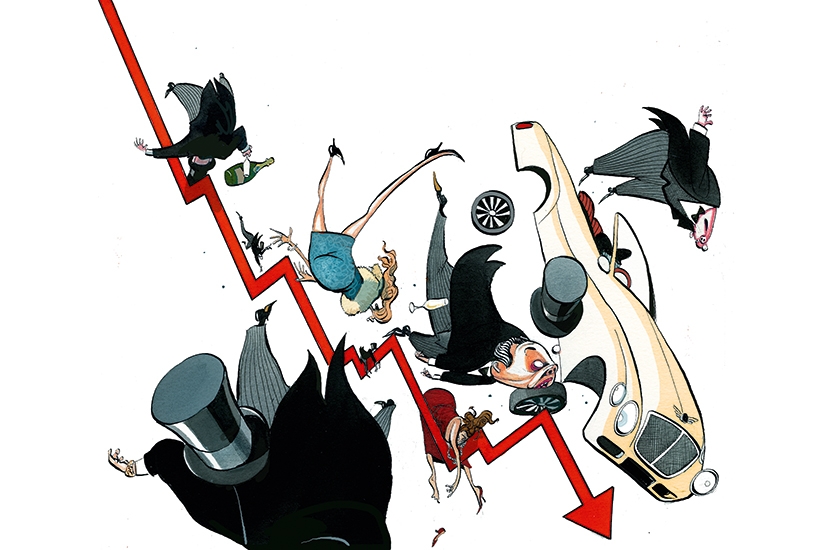The political story for the moment is the cost of living crisis. But by the end of the year could we be talking about a recession instead? We shouldn’t read too much into one year’s economic growth figures, especially given how often they are revised upwards or downwards. But February’s figures, published this morning, have caught many people unawares. They show that the economy just about ratcheted upwards in February, growing by 0.1 per cent. That’s compared with healthy growth of 0.8 per cent in January, as the country emerged from the Omicron scare.
Notably, in two areas the economy contracted: construction fell by 0.1 per cent and production by 0.6 per cent. It was only the services sector, where growth was 0.2 per cent, which kept the economy’s head above water, and much of that was down to a rebound in foreign holidays. While the economy as a whole is now 1.5 per cent larger than it was pre-pandemic, production is still 1.9 per cent smaller, with the automotive sector in particular dragging down the figures.
What should worry everyone is that February’s GDP figures come before the full impact of household energy price rises
What should worry everyone is that February’s GDP figures come before the full impact of household energy price rises. We won’t know the impact of that for a couple of months, when we get GDP figures for April. It is hard to imagine that the production or construction sectors of the economy will have picked up by then – both are struggling with rising input prices. But it is all too easy to see how the services sector might have gone into reverse by then too, with consumers drawing in their horns and cutting back on discretionary spending in order to pay their essential bills.
Government bailouts earned us an early exit from the Covid recession. Although extremely deep, the plunge in the economy then only just about qualified as a recession – there were only two quarters of negative growth. But the price of governments buying an early exit from the Covid recession is that we may be heading for an inflation-sparked recession two years later. What we are experiencing now feels like unfinished business from two years ago, as we discover the full, inevitable effects of closing down large parts of the economy for weeks on end in 2020.
The word ‘recession’ has receded from everyday political language over the past year as the economy appeared to stage a strong recovery. But don’t be surprised if it starts to be used with increasing frequency in coming weeks. Here is an alternative vision of Britain in autumn 2022: the country enters its second recession in two years. All talk of interest rate rises ceases as debate turns instead to when the Bank of England is going to make an emergency rate cut. The – quite possibly new – Chancellor brings forward plans for a penny cut to the basic rate of income tax in an effort to stimulate demand, while unemployment surges in manufacturing areas.
I always remember the day I drove into my local town in mid-afternoon in May 2008 and asked myself: where is all the traffic? Have we entered a recession? It turned out that that is exactly when the 2008/09 recession began. It will pay to keep an eye on the traffic in coming months.







Comments